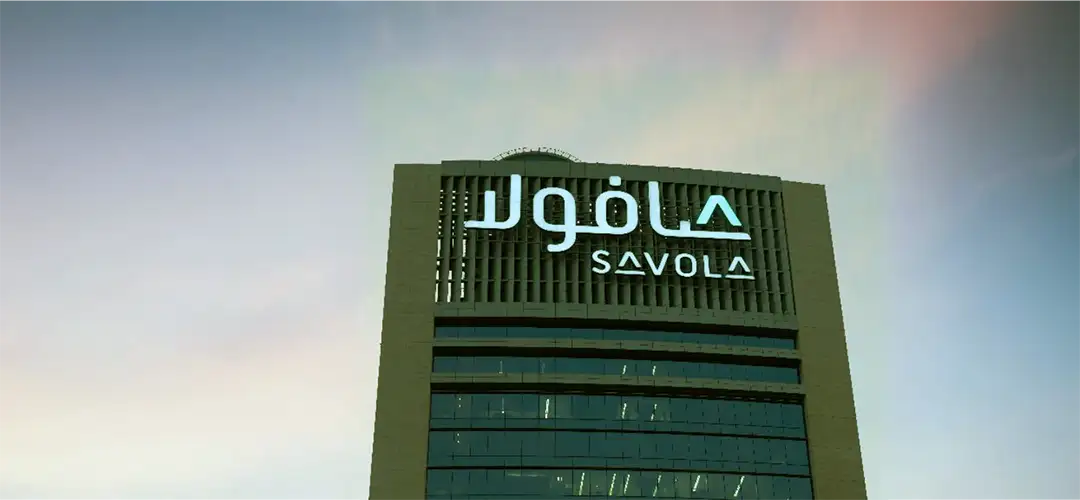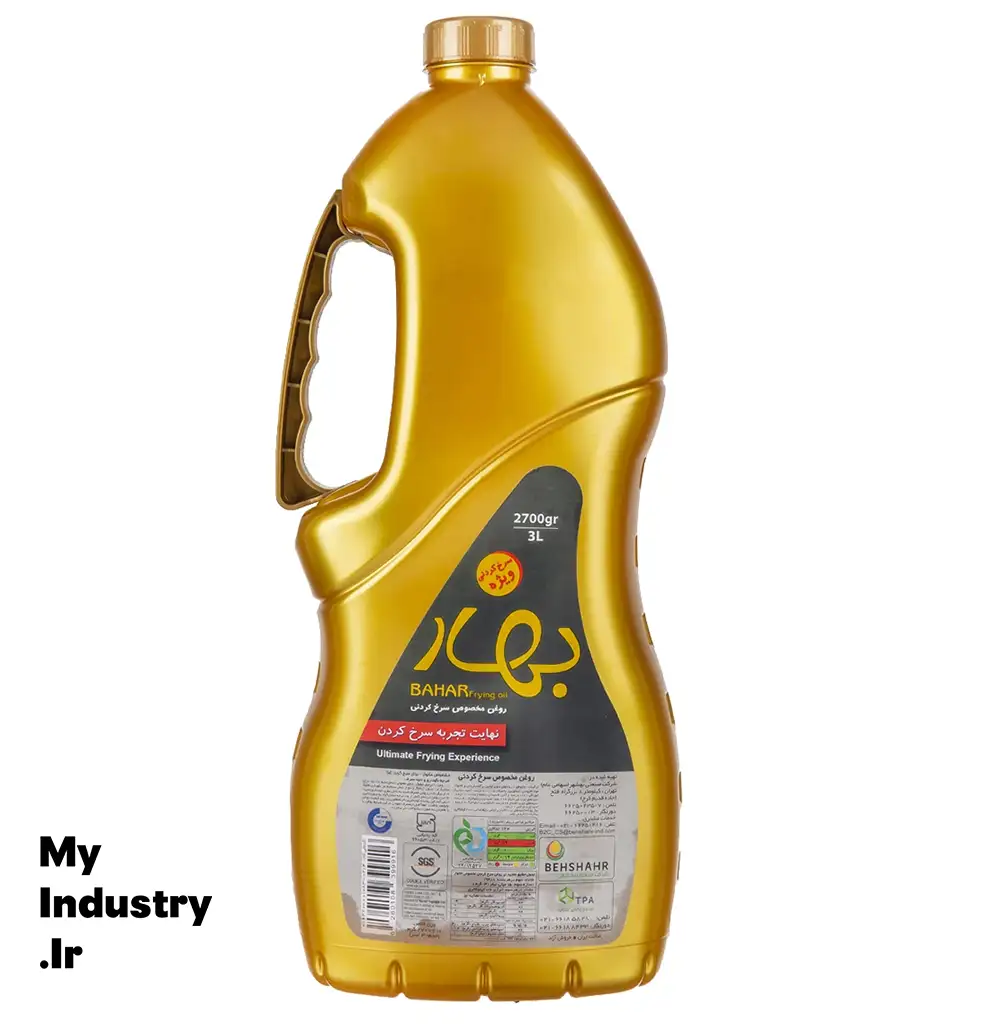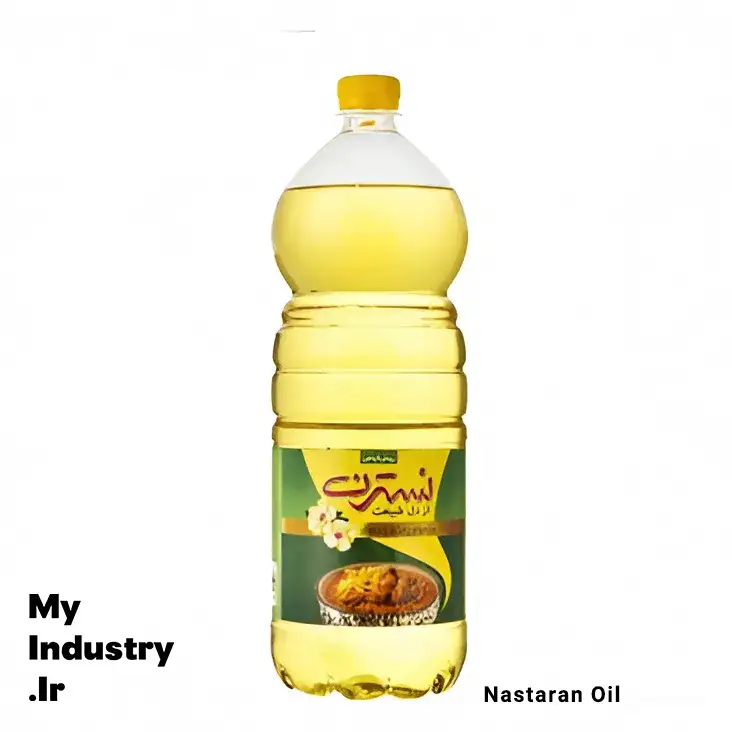The Rise and Departure of Savola in Iran’s Edible Oil Industry
How Savola Entered and Exited Iran’s Edible Oil Market: Key Events and Impact

Before discussing Savola’s operations in Iran, it is essential to understand the company’s global presence, its key brands, and how it became a dominant force in the edible oil industry across the Middle East and beyond. So we think that Savola in Iran’s Edible Oil Industry had a key role, and now we are going to analyze new situation after its exit.
Savola Group: A Leading Food and Retail Conglomerate
Founded in 1979 in Saudi Arabia, Savola Group is one of the largest food and retail investment holding companies in the Middle East, North Africa (MENA), and Turkey. Initially established as an edible oil producer, Savola has significantly expanded over the decades into multiple sectors, including sugar production, pasta manufacturing, frozen foods, and retail chains.
Savola’s Core Business Sectors
-
Food Sector (Savola Foods Company)
- Edible Oils: Marketed under brands like Afia, Al Arabi, Yudum (Turkey), and Elianto (Malaysia).
- Sugar: Sold under the Al Osra brand.
- Pasta & Flour: Distributed under Al Maleka and King’s brands.
- Frozen Foods: Offered through Al Kabeer.
- Healthy Snacks & Nuts: Provided by Bayara.
These products are available in over 50 countries, making Savola a leading player in the region’s food industry.
-
Retail Sector (Panda Retail Company)
- Panda Supermarkets and Hypermarkets: Over 205 retail stores, primarily in Saudi Arabia and Egypt.
-
Strategic Investments
- Almarai: A 34.52% stake in the largest dairy company in the Middle East.
- Herfy Food Services: A 49% stake in Saudi Arabia’s largest fast-food chain.
Afia: Savola’s Flagship Edible Oil Brand
One of Savola’s most well-known brands is Afia, a leading cooking oil brand launched in 1980. Afia is widely recognized for producing premium edible oils, including:
- Sunflower oil
- Corn oil
- Olive oil
- Blended vegetable oils
Afia dominates the edible oil market across the Middle East, Turkey, and North Africa with strong consumer trust and high-quality refining standards.
Afia’s Market Presence in Different Regions
- Saudi Arabia & GCC: Flagship brand for corn and sunflower oils.
- Egypt: Popular for affordable and high-quality cooking oils.
- Turkey: Marketed as Afia Yudum, a well-established brand.
- Iran: Operated under Savola Behshahr before Savola’s exit.
- North Africa (Morocco, Algeria, Sudan, etc.): Premium oil supplier.
Savola’s Entry into Iran: Expansion and Growth
Savola entered the Iranian market in 2004 and quickly became the largest foreign investor in Iran’s food sector. The company acquired a majority stake in Behshahr Industrial Company, Iran’s leading edible oil producer, and established Savola Behshahr Company.
Savola’s Key Brands in Iran
- Ladan
- Bahar
- Nestran

These brands dominated the Iranian edible oil market, benefiting from Savola’s advanced production technology, marketing expertise, and extensive distribution network. At its peak, Savola controlled over 40% of Iran’s edible oil market.
Savola Group Key Facts & Figures
| Category | Details |
|---|---|
| Founded | 1979 |
| Headquarters | Jeddah, Saudi Arabia |
| Industry | Food & Retail |
| Total Revenue (2023) | $8.5 billion (approx.) |
| Number of Employees | 20,000+ |
| Market Presence | 50+ countries |
| Major Brands | Afia, Al Arabi, Yudum, Al Osra, Al Maleka, Bayara, Al Kabeer |
| Retail Operations | 205+ Panda supermarkets & hypermarkets |
| Key Investments | 34.52% stake in Almarai, 49% stake in Herfy Food Services |
| Entry into Iran | 2004 |
| Exit from Iran | 2024 |
| Former Iranian Brands | Ladan, Bahar, Nestran |
| Stake Sold in Iran | $188 million |

Savola’s Exit from Iran: A Deep Analysis of Causes and Consequences
Savola’s decision to exit Iran in January 2024 marked a significant event in the country’s edible oil and food industry. This move was driven by a combination of economic uncertainties, geopolitical tensions, and international sanctions, leading to the sale of its entire stake in Savola Behshahr for $188 million. However, beyond the surface-level explanations, a deeper analysis reveals structural, financial, and strategic factors that shaped this decision and its short-term and long-term consequences for Iran’s food market.
Why Did Savola Exit Iran?
Although Savola’s official statement cited broad economic and geopolitical issues, a detailed examination suggests that its exit was the result of a convergence of multiple pressures:
1. Impact of U.S. Sanctions & Banking Restrictions
- The reinstatement of U.S. sanctions on Iran in 2018 under the Trump administration severely restricted international trade.
- Foreign companies, including Savola, struggled with banking transactions, currency repatriation, and supply chain logistics.
- Many European and Middle Eastern firms gradually scaled back or exited Iran, fearing secondary sanctions.
- Savola’s operations in multiple countries, including Saudi Arabia, Egypt, and Turkey, meant it had to comply with international financial regulations, making it difficult to maintain a strong presence in Iran.
2. Currency Depreciation & Economic Volatility
- The Iranian rial has lost over 80% of its value against the U.S. dollar since 2018, creating unstable business conditions.
- Import costs skyrocketed, making raw material procurement for food production more expensive.
- High inflation (over 50%) in Iran led to a decline in consumer purchasing power, affecting demand for premium edible oil brands like Ladan, Bahar, and Nastaran.
3. Declining Profitability & Market Competition
- While Savola once dominated Iran’s edible oil market, local competitors began strengthening their supply chains despite economic challenges.
- The Iranian government encouraged local production to reduce dependency on foreign investment, making it harder for Savola to justify continued operations.
- High government intervention in pricing and subsidies limited Savola’s ability to set competitive yet profitable prices.
4. Saudi-Iran Relations & Geopolitical Factors
- Although Saudi-Iran diplomatic ties were restored in 2023, relations had been strained for decades, impacting Saudi business ventures in Iran.
- Savola, as a Saudi-based company, faced potential risks from Iran’s changing foreign policy stance and domestic economic policies.
- Geopolitical instability in the region, including U.S.-Iran tensions and broader Gulf dynamics, added uncertainty for multinational businesses.
Impact of Savola’s Exit on Iran’s Edible Oil Industry
Savola’s departure did not just affect its own business; it reshaped Iran’s edible oil industry in several ways:
1. Ownership Transfer & Continuity of Major Brands
- The Ladan, Bahar, and Nestran brands were well-integrated into Iran’s market.
- The new Iranian buyers of Savola Behshahr inherited established supply chains, distribution networks, and brand loyalty.
- However, quality control, brand perception, and operational efficiency under new management remain uncertain.
2. Short-Term Market Disruptions & Pricing Volatility
- Consumers & distributors initially faced uncertainty, leading to fluctuations in edible oil supply.
- Potential delays in product deliveries, minor supply chain disruptions, and price fluctuations occurred in the first months following the transition.
3. Increased Market Share for Local Producers
- Iranian edible oil companies have gained a larger market share, benefiting from the vacuum left by Savola.
- Government-backed firms and private local players are expected to expand operations to compensate for the supply gap.
4. Foreign Investment Deterrence
- Savola’s exit sent a strong signal to other foreign investors, raising concerns about business risks in Iran.
- Other multinational firms in Iran’s food sector might reassess their long-term plans, fearing financial instability or geopolitical risks.
- Iran may need stronger policies to attract and retain foreign investors despite ongoing economic challenges.
5. Shift in Iran’s Trade & Economic Policies
- The Iranian government may introduce more incentives for local food producers to reduce reliance on foreign companies.
- Trade relationships with non-Western countries (e.g., China, Russia, India) may become a bigger focus to fill investment gaps left by companies like Savola.
Savola Share in Iran’s Market
According to available data, Savola Behshahr, with its well-known brands such as Ladan, Ladan Talaei, Bahar, and Nestran, held a significant share of Iran’s edible oil market. Reports indicate that by 2010, the company controlled approximately 40% of the market [Isignal].
Additionally, some sources suggest that Savola Behshahr’s market share exceeded 50% during its peak years in Iran [Mehr News].
Therefore, during its operational period in Iran, Savola Behshahr maintained a dominant position in the edible oil market, holding a market share estimated between 40% and 50%.
Was Savola’s Exit a Loss or an Opportunity for Iran?
From one perspective, Savola’s departure represents a loss of foreign expertise, investment, and competition, which could have long-term effects on product innovation and supply chain efficiency. However, it also created an opportunity for local Iranian companies to expand and strengthen their foothold in the edible oil sector.
Iran’s ability to adapt to this shift will depend on:
- How effectively new owners manage Savola Behshahr’s brands
- Government policies supporting local production & price stability
- Iran’s ability to attract alternative investors from friendly economic partners
Savola’s 20-year presence in Iran transformed the edible oil market, and while its exit is significant, the industry is likely to remain resilient and continue evolving under new leadership.
Impact on the Iranian Edible Oil Industry
- Loss of Foreign Investment: Savola was the largest foreign investor in Iran’s food sector, and its departure left a gap in capital and technological expertise.
- Brand Transition: Ladan, Bahar, and Nastaran were well-established under Savola’s ownership. With Savola’s exit, the brands transitioned to new ownership, potentially affecting quality, supply chain efficiency, and market competitiveness.
- Market Shift: The Iranian edible oil industry, already affected by import restrictions and raw material shortages, faced increased pressure to fill the void left by Savola’s departure.








